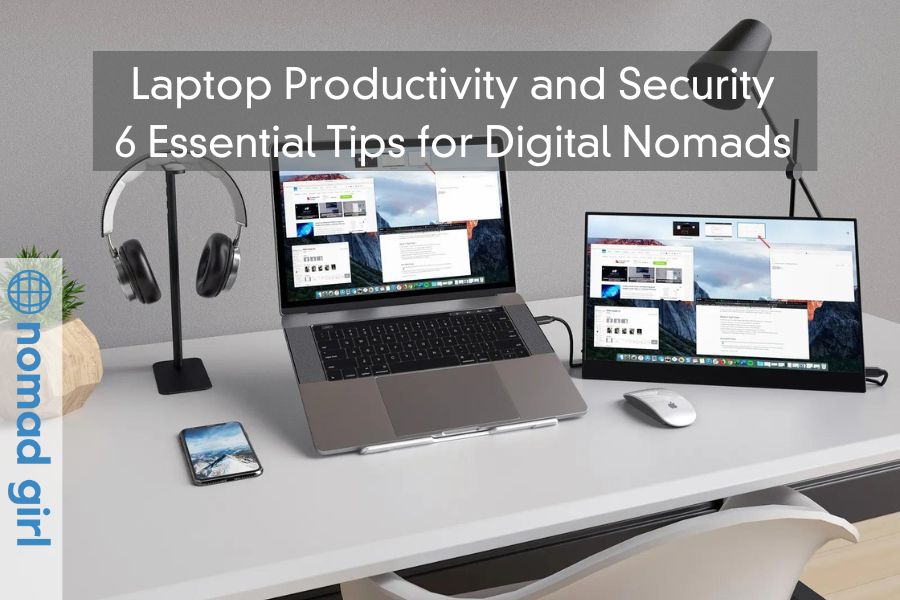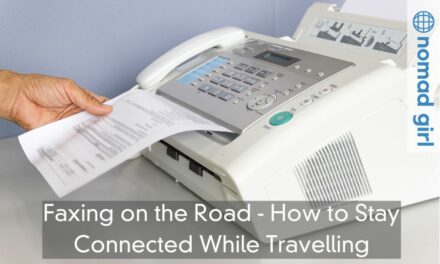Digital nomads can work from almost anywhere in the world – a cosy café in Lisbon, a savvy co-working space in Bangalore, or a gorgeous beach in Bali. The main requirements? A stable internet connection and a reliable laptop.
A laptop is fundamentally the most vital digital nomad tool. How can you achieve your tasks without it? Whether you’re monitoring online sales or making creative content, you need a laptop to function efficiently while on the road. However, working on it is not always ideal or safe.
Viruses, malware, overheating, system crash, and health issues such as eye strain and neck pain are some of the most common drawbacks of using a laptop regularly. Unfortunately, almost every digital experiences at least one of these.
On the bright side, there are simple and affordable ways to sidestep these issues. If you want to learn how to increase your laptop productivity and security, read on. From installing a VPN to getting a double screen, here are six essential tips every digital nomad should know.
1. Invest in Double Screen
A laptop is a necessary tool for remote workers. But with a maximum size of 17 inches, the screen is often too small. How do you solve this problem? By getting a portable second screen for your laptop.
According to a study, an extended screen helps reduce stress levels, which leads to increased productivity and efficiency. A portable double screen does not necessarily increase your monitor size. But it provides extra room for efficient multi-tasking and a more organized workspace. You get a better insight into data as your tabs and windows are easier to see and access.
A second screen eliminates the need to scroll and constantly reposition apps, giving you more time to complete your primary tasks. Plus, it enhances the entertainment experience when you watch movies or play games because you don’t have to strain your eyes as you do on a smaller screen.
How do you choose a portable double screen that best suits you?
Consider the size. If your remote job involves specialized tasks such as scanning long blocks of code or editing videos and photos, a larger double screen with higher resolution is your best option. Otherwise, you can settle for a regular-sized one. Also, check out the weight (because you’ll be travelling much), picture quality, and connectivity (can you plug it into your laptop?).
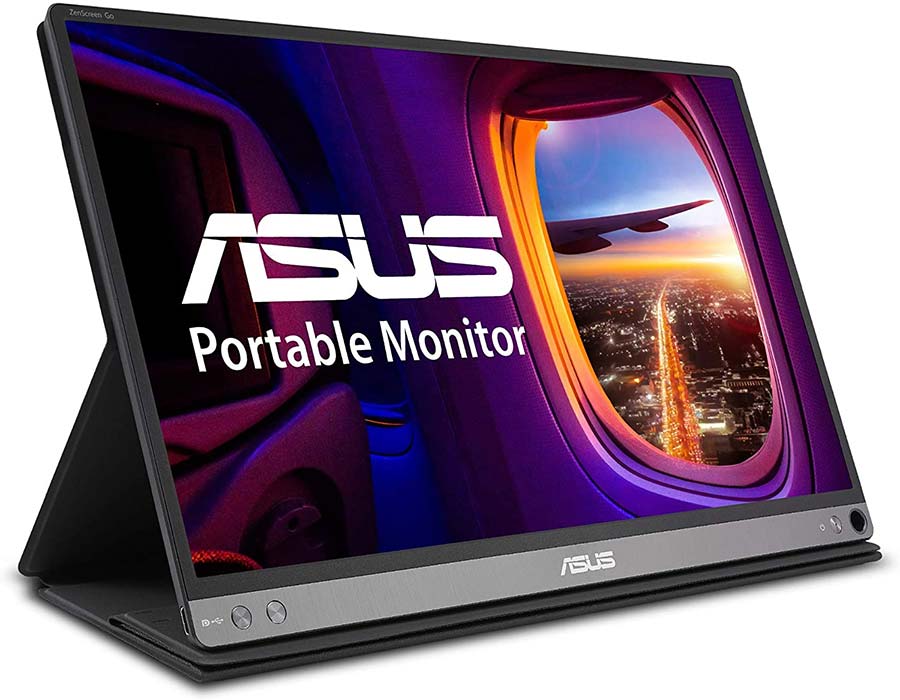
At Nomad Girl we are a fan of the Asus Zenscreen as a second 15.6″ monitor. It is portable and you can connect it to your laptop via USB-C
2. Use Blue Light Glasses
As a digital nomad, you typically spend long hours on your laptop. Electronic devices emit blue light, a short wavelength, high-energy light. Because blue light scatters more freely than other lights, it can stress your eyes easily.
A study reveals that frequently staring at the screen for long periods does not permanently damage the eyes. But it can cause digital eye strain or computer vision syndrome. You may experience eye discomfort (itchy, watery, dry, burning sensations), blurred vision, changes in colour perception, headaches, and loss of focus flexibility.
One of the most effective ways to reduce the risk of vision-related issues is by using blue light filters. Better yet, consider getting high-quality blue light glasses from Mouqy. These glasses help decrease the amount of blue light hitting your eyes so your pretty peepers will not feel as strained, tired, or fatigued after long hours of work.
Additionally, you can protect your eyes from too much screen time by adjusting the brightness of your monitor. Give your eyes a 20-second break every 20 minutes, keep your laptop about 25 inches from your eyes, and get a yearly eye exam.
3. Get a Portable Laptop Stand
Working on a laptop doesn’t only stress the eyes but can also strain your neck, back, and wrists. These often arise from improper typing positions or poor body posture. The most cost-effective solution to these issues is to get a laptop stand.
A laptop stand is an accessory placed beneath the device to provide elevation to improve the typing experience. It may seem a trivial add-on, but its benefits are many. Apart from reducing physical stress, a stand promotes good posture and minimizes eye strain. It also provides an ideal resting place for your hands. You only have to use minimal force and energy when typing, which relieves wrist pain and hand fatigue.
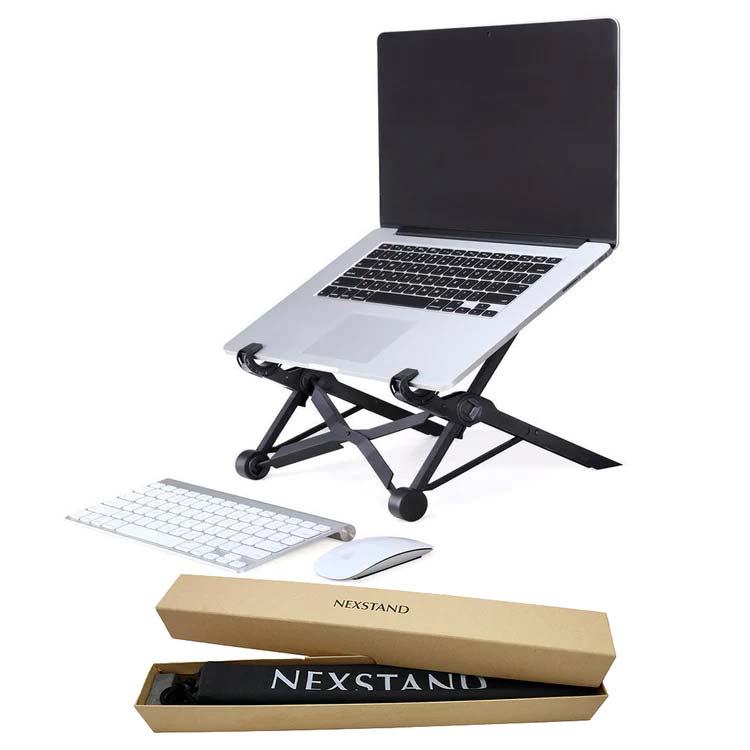
The NexStand K2 can fold into a small package and weighs less than 240 grams.
Laptop stands have flexible adjustments, meaning you can lift them according to your height for better viewing. They also raise the laptop’s base from the surface, creating a gap where air can freely flow. With this, you can prevent overheating and increase its life span. Stands are light and portable, and you can easily carry them as you travel. Lastly, they are multi-functional, with some having cupholders and extra compartments for your mouse or phone.
4. Install a VPN
How safe is public WiFi? Can you use your hotel internet connection for banking activity without security lapses?
As you travel to various destinations, you may use public WiFi not only in your hotel but also in the airport, a bus, or a café. Browsing through shared networks makes you a target of hackers waiting to steal your personal information. It’s like leaving your credit card on the table in a random restaurant for anyone to see.
A Virtual Private Network (VPN) maximizes your security and anonymity online. It enables you to connect securely to the internet by creating an encrypted channel for your data to pass through. You remain invisible while using a VPN, so hackers can’t see you or your activity. You can hide your login details, passwords on financial applications, money transfer services, and even searches from malicious people online.
A VPN allows you to bypass geo-restrictions by switching your IP address. It means you can still access your favourite shows, online news, and streaming services even if they are blocked in your current location.
Some of the best VPNs in the market include Surfshark, NordVPN, and ExpressVPN.
5. Create backup codes for Google Authenticator
Google Authenticator is a free security app that verifies your identity before you can access your account and other web-based services. It protects you from password theft using a two-factor authentication (2FA) process. In a nutshell, the app creates a random code to validate your identity when you log in.

The 2FA method requires you to provide not just your password but also a second verification component, including biometrics (facial, retinal, or fingerprint scan) and something you possess, such as your mobile phone. The app sends a code to your phone via SMS that you can use to verify your identity. In other cases, you get a prompt on the screen asking if it’s really you trying to log in. All you have to do is pick up your phone and confirm that it’s you.
But what if you don’t have access to your phone? You can create a list of backup codes to sign in to your account without your smartphone. You can print a list of these codes and store it somewhere secure.
6. Backup your files online and on an SSD drive
Perhaps nothing fills nomads with dread like the message ‘not enough storage space.’ For someone frequently on the go, a portable SSD (Solid State Disk) drive is an indispensable tool for increasing your laptop’s storage capacity, transferring large amounts of data, and loading programs faster.
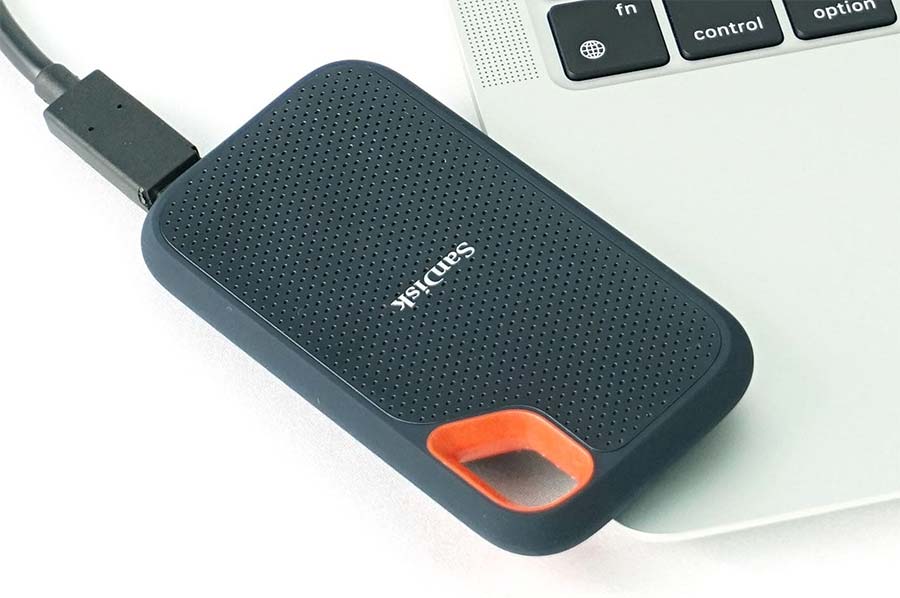
With an SSD drive, you can take any projects you’re working on anywhere you go and keep them all in a single organized place. More importantly, it ensures you don’t lose your data and files if your laptop gets lost or damaged. SSD drives are less prone to damage than traditional Hard Disk drives.
To be extra safe, back up your files on cloud storage. Your files and data remain readily available even if your SSD drive gets damaged or in a case of an outage, natural disaster, or system failure.


